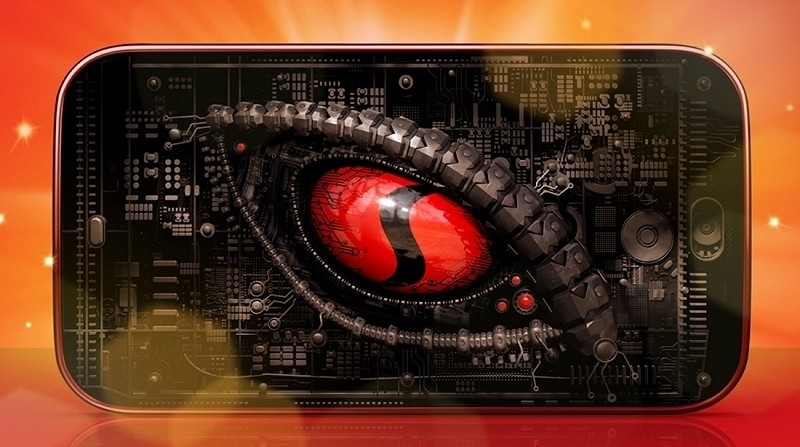
Qualcomm teased the Snapdragon 820 earlier this year, but the latest rumors indicate the company will launch the new SoC as soon as next week. And with most imminent launches of a new product, details have leaked out ahead of time that allegedly give us a good look at what this SoC will include.
According to slides posted to Weibo, the Snapdragon 820 will be built using a 14nm FinFET process as expected. The CPU will be an in-house design called 'Hydra', packing a 35% performance improvement over the current Snapdragon 810 and its ARM-designed cores. There will be four cores in total, based on ARM's 64-bit capable ARMv8 architecture.
The GPU will reportedly be bumped up to an Adreno 530, providing 40% better performance and 30% better power consumption compared to the Adreno 430 in the Snapdragon 810. Qualcomm are typically pretty cagey when it comes to GPU details, so even at launch, don't expect to get any further information on the Adreno 530 out of the company.
The Snapdragon 820 allegedly comes with a range of other new features as well, including an integrated LTE Category 10 modem, 4K60 decoding, 4K60 Miracast support, 10-bit HEVC and VP9 decoding, new hardware security solutions, a dedicated low-power sensor for "always-on use-cases", 14-bit dual-ISPs supporting 28-megapixel sensors, and an LPDDR4-1866 memory controller.
The combination of Qualcomm-designed CPU cores and a 14nm manufacturing process is expected to resolve thermal and throttling issues present with the current-generation Snapdragon 810. For this reason, Qualcomm's SoC roadmap for late 2015 doesn't show a successor to the hexa-core Snapdragon 808.
The first smartphones using the Snapdragon 820 are expected to be released in early 2016, with Xiaomi expected to be the first company to launch a Snapdragon 820-powered device. Stay tuned for the official details on the Snapdragon 820 in the coming weeks.
https://www.techspot.com/news/61655-qualcomm-snapdragon-820-reportedly-detailed.html